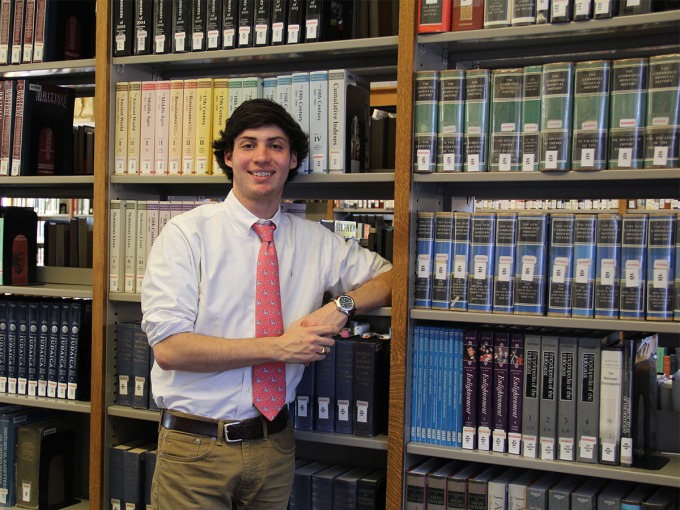Guest post by Adam Gray ‘16:
For the past two summers, I have volunteered at Camp St. Vincent, a day camp for underprivileged and homeless children aged 5-12 in inner-city Baltimore. During my first summer volunteering, I signed up for two weeks: the amount of time necessary to fulfill my 50-hour service requirement. I stayed for four, leaving only because I had to, due to another commitment.
This past summer, I once again returned to camp, staying the entire summer and really getting to know the kids in my group. Every morning I drove to Patterson Park as the sun rose, arriving at least and hour before the kids to plan the day, prepare the site, and have a few moments of quiet.
 I worked with the oldest group of kids, teaching them math, reading with them, participating in emotional-social learning activities, and (their favorite part) taking them swimming and playing games. Academics were supposed to be the focus for the kids; many were below grade level and this was a chance to catch up. From the training program and the manuals that the counselors were given, I knew these kids had both social and academic difficulties, but I was still caught off guard. I thought I was prepared for their emotional needs, but I was made keenly aware of my inadequacy by the end of the first week. I did realize that the kids, and I, were learning far more than that; we were learning about our differences, and how those were a benefit to all of us, rather than a disadvantage. It turned out that we were more similar than we had originally thought.
I worked with the oldest group of kids, teaching them math, reading with them, participating in emotional-social learning activities, and (their favorite part) taking them swimming and playing games. Academics were supposed to be the focus for the kids; many were below grade level and this was a chance to catch up. From the training program and the manuals that the counselors were given, I knew these kids had both social and academic difficulties, but I was still caught off guard. I thought I was prepared for their emotional needs, but I was made keenly aware of my inadequacy by the end of the first week. I did realize that the kids, and I, were learning far more than that; we were learning about our differences, and how those were a benefit to all of us, rather than a disadvantage. It turned out that we were more similar than we had originally thought.
On the first day, I took four 12-year-olds to sit under a tree and read, only to realize that two of them could not do so with any degree of proficiency. The same was true for math. What really struck me, however, was that, unlike many 6th graders, these kids wanted to learn--desperately. They were frustrated that they could not keep up with their friends. In my opinion, this was the easiest part of my mission as a camp counselor: sitting with the kids during their math and reading times, helping to keep them on task, and intervening when I saw that they were struggling. I was worried about having enough patience but realized that their keen desire to learn gave me infinite patience.
My favorite lesson to teach was in the pool. Growing up, I had always been a strong swimmer and never considered that these kids had not been exposed to water safety basics. The first time I went to the pool with my campers was a humbling experience. It struck me that many of the kids in my group could not swim at all, just as it had struck me that many of them could not read. About ten minutes into our hour-long swim time, one of my campers approached me. Carlos, who was the quietest of the group, asked me if I would teach him how to swim. I was thrilled and honored that, having known me for only a day, he entrusted me enough not only to reveal a fault, but also to help him fix it. For the next three weeks, we worked on swimming every day, occasionally joined by other Camp St. Vincent kids. By the end of summer, Carlos was one of the best swimmers in the group, and I felt proud of what I had been able to do for Carlos and his peers.
